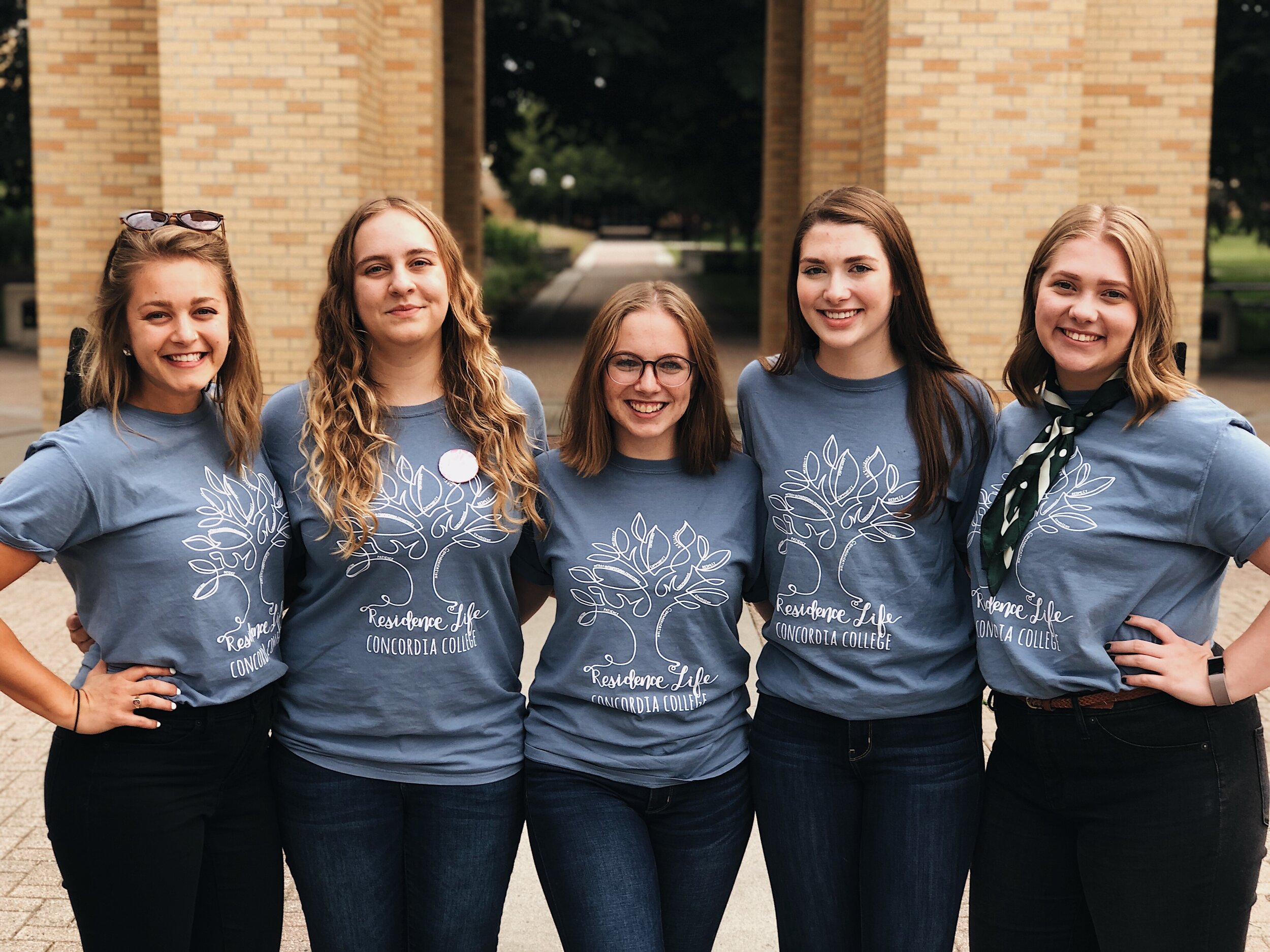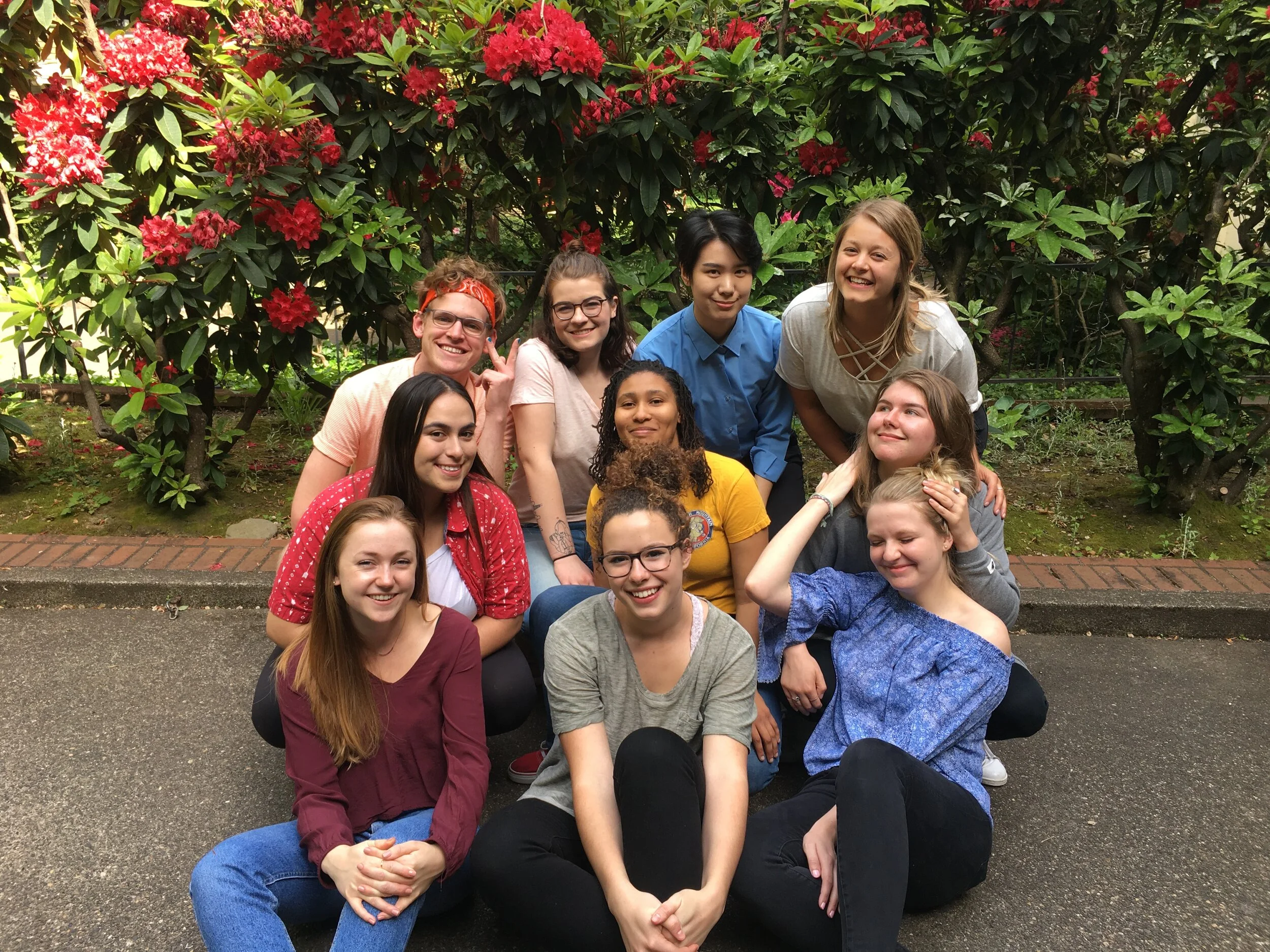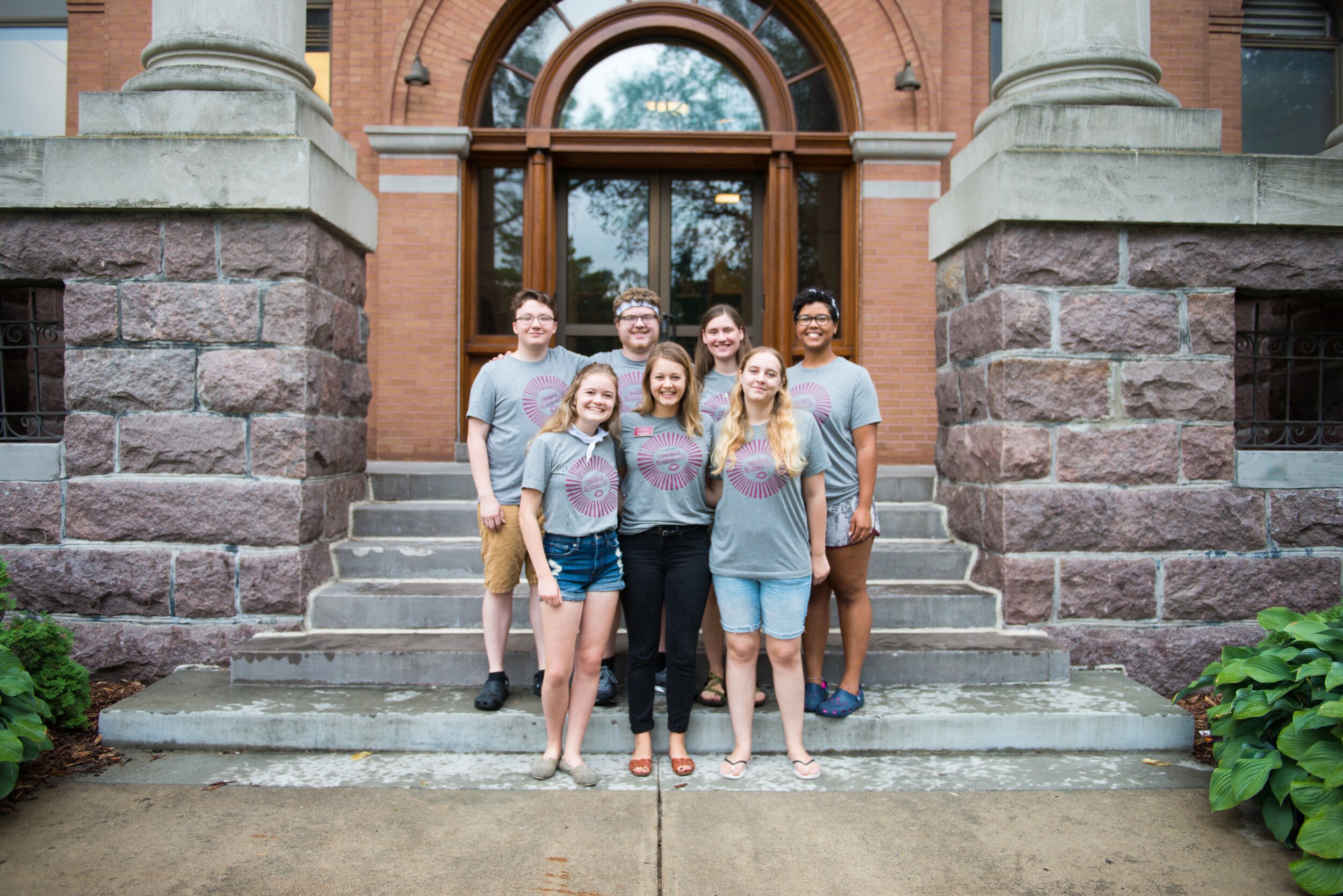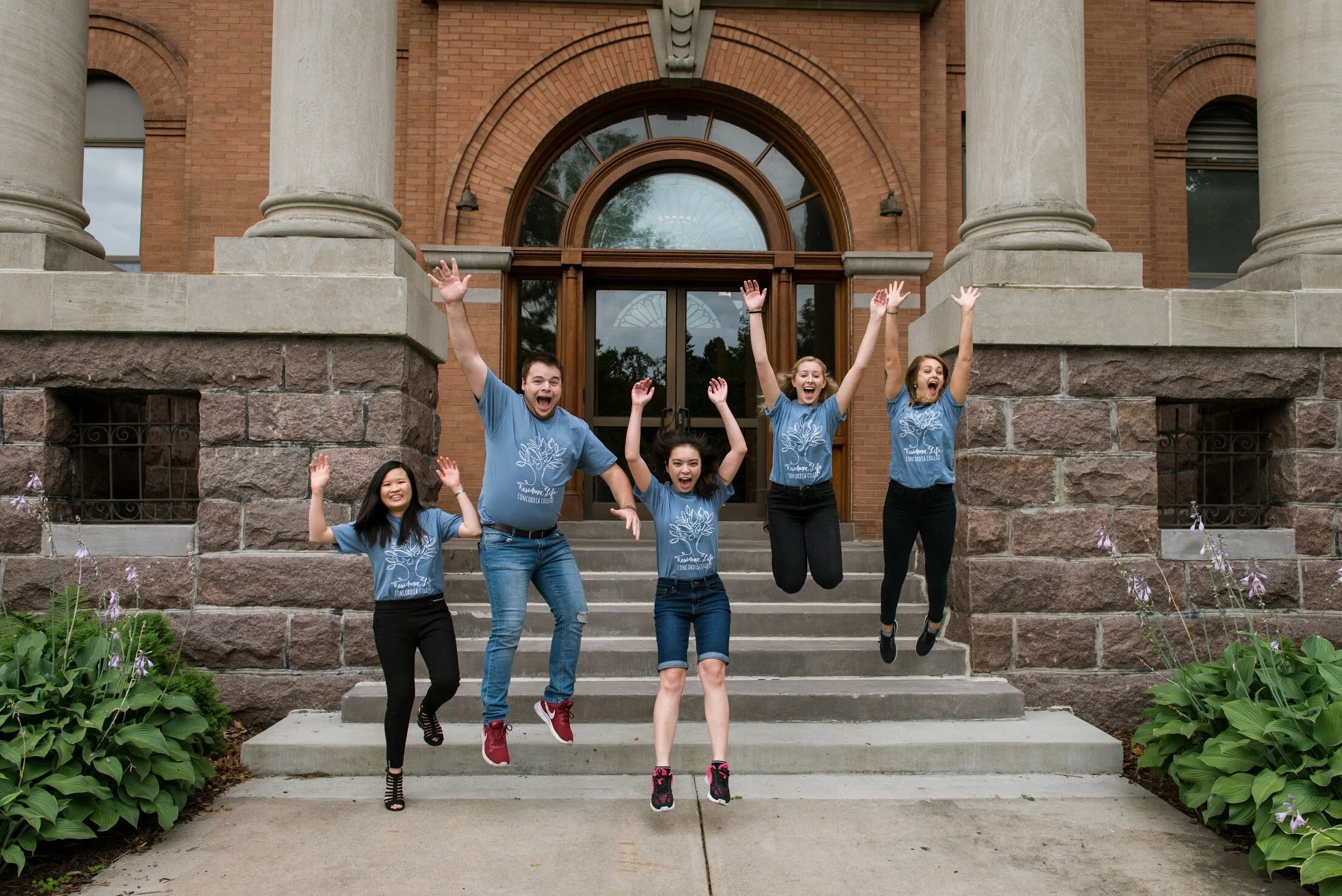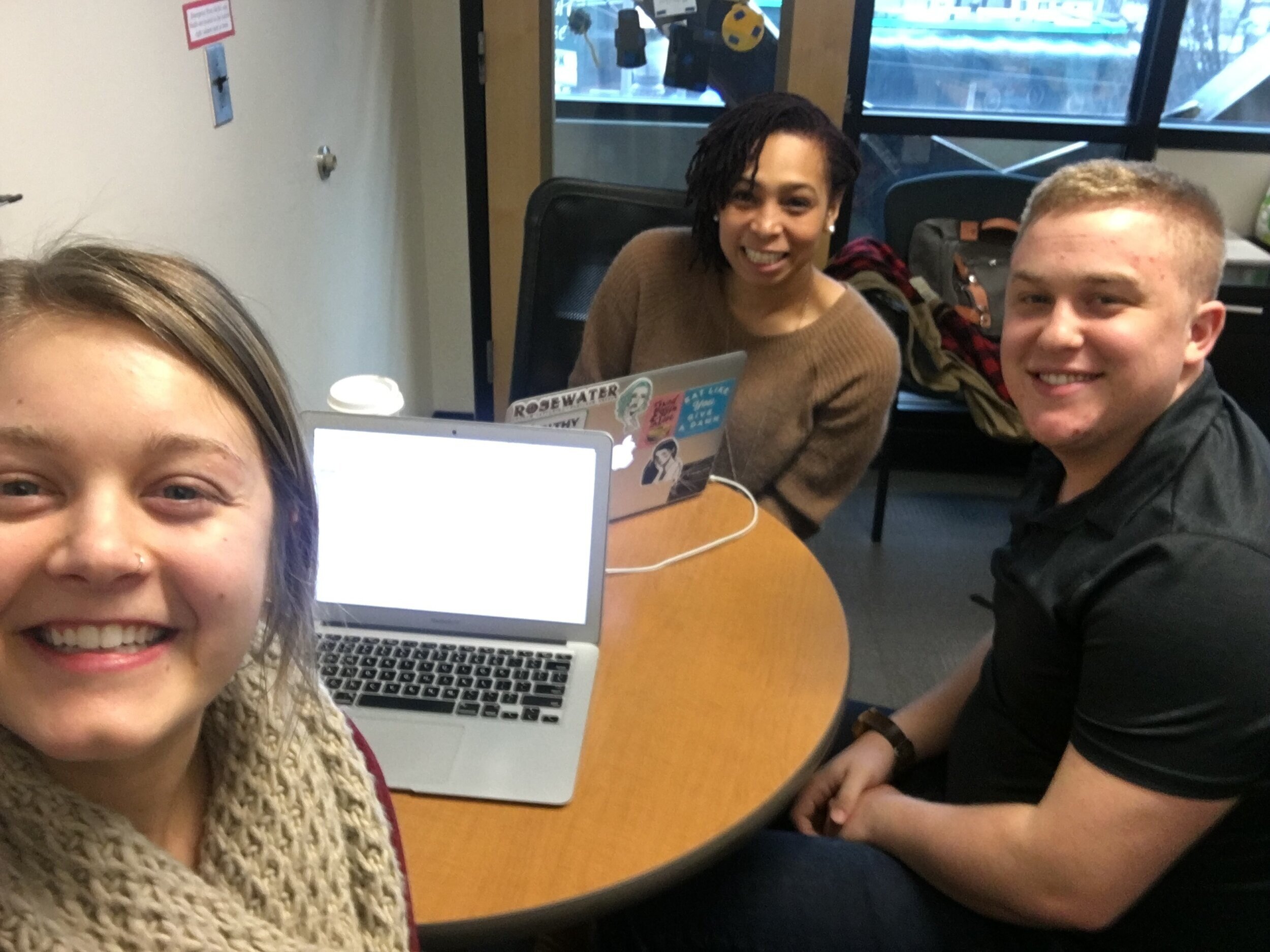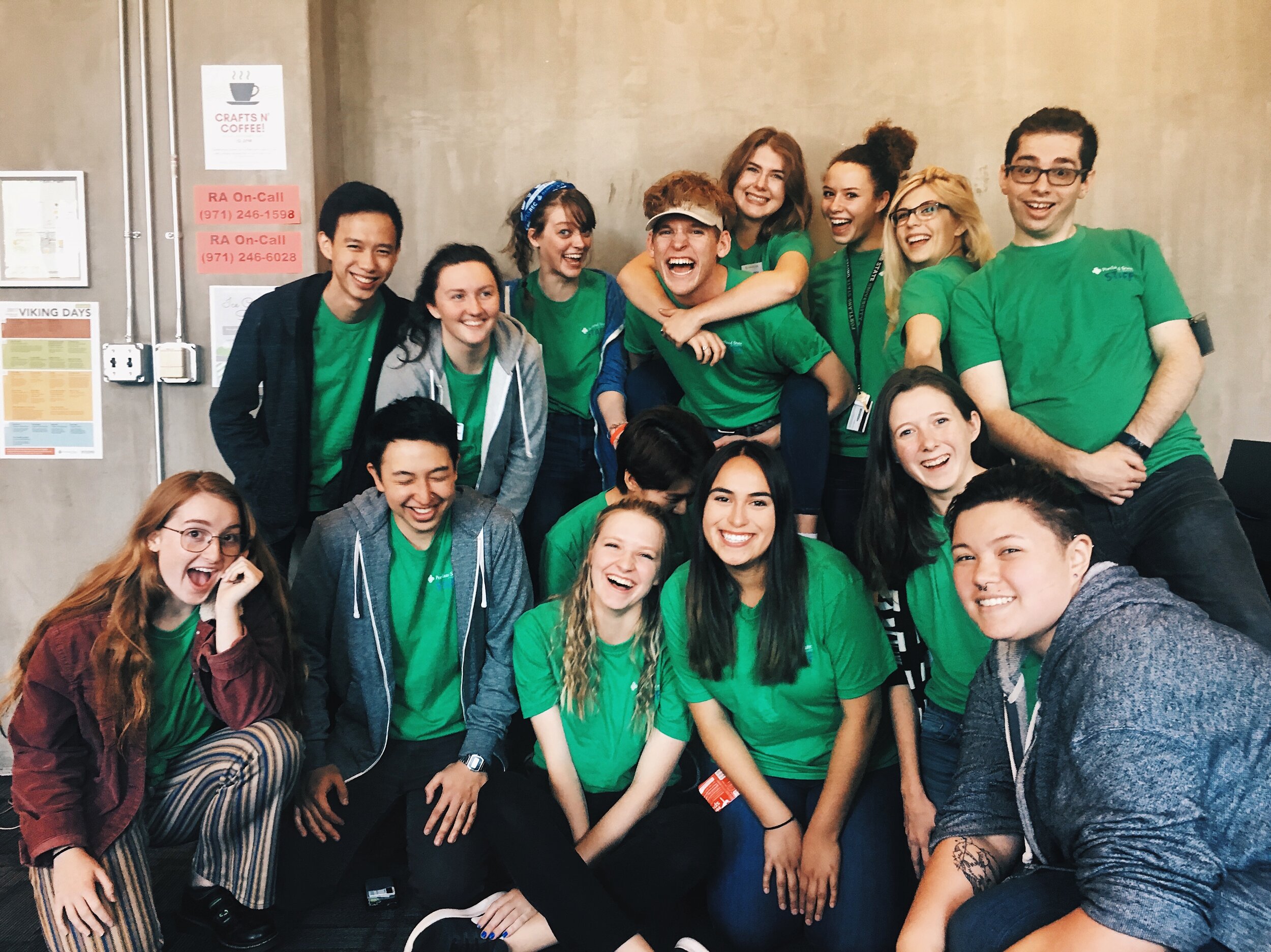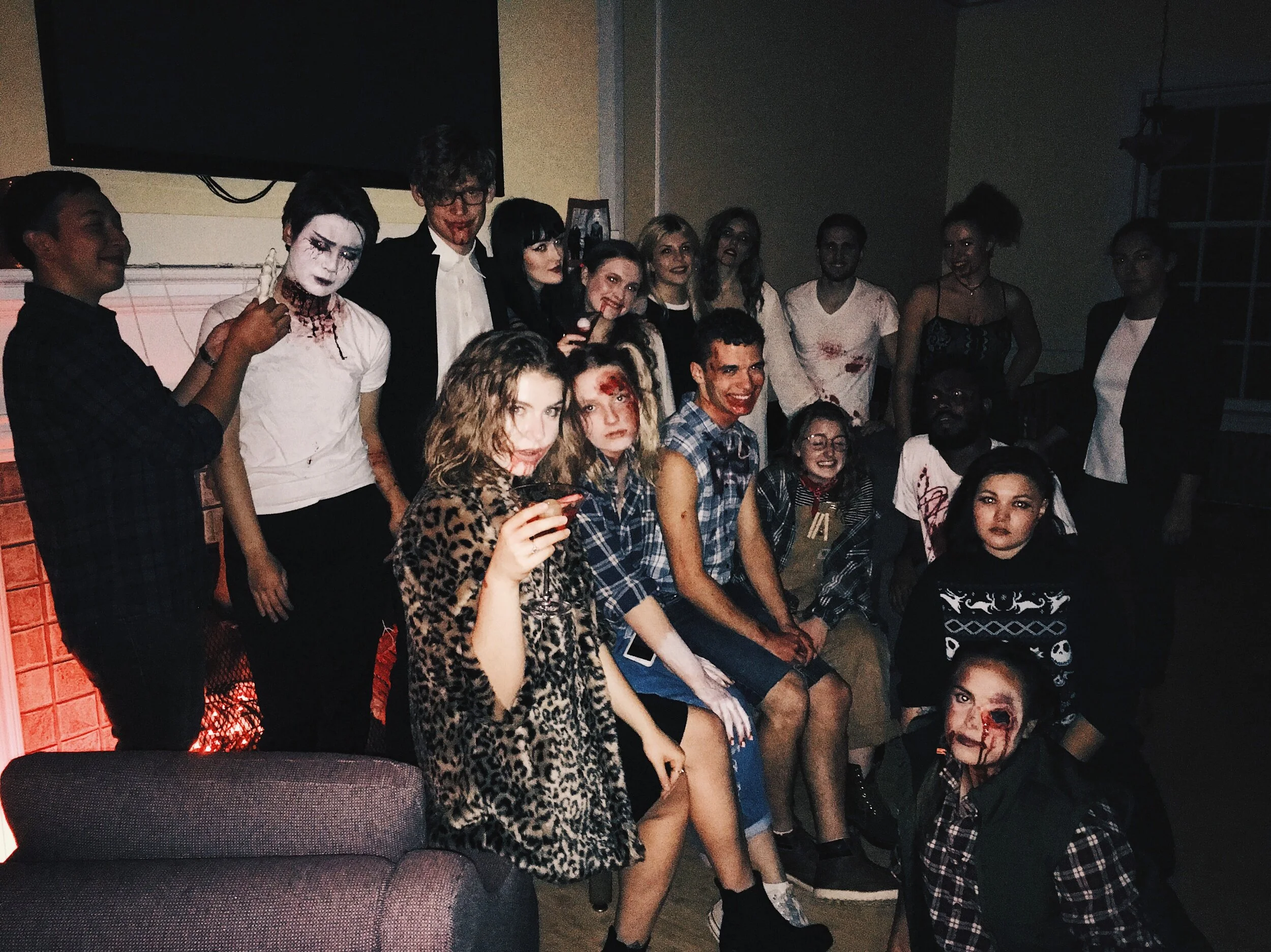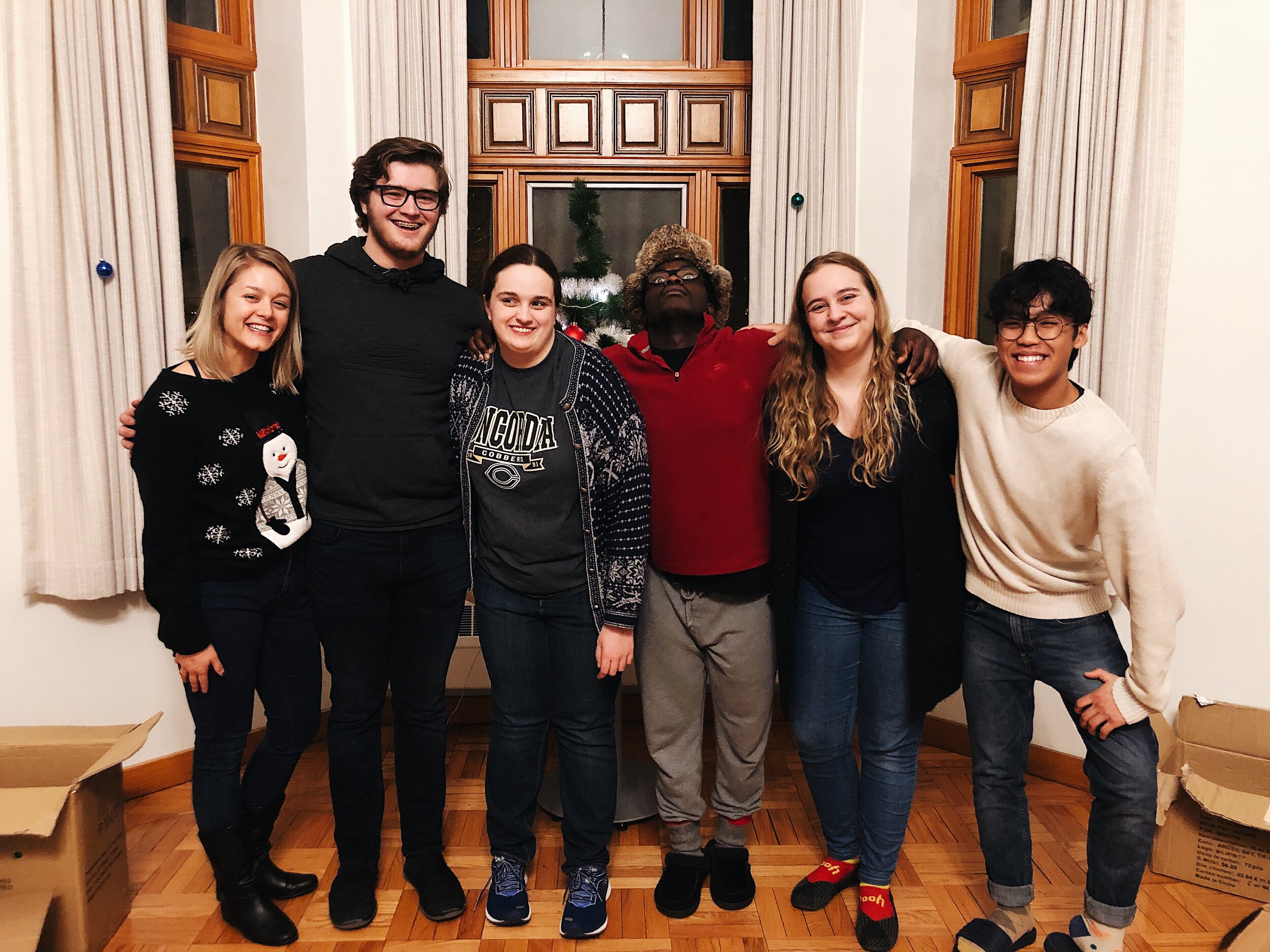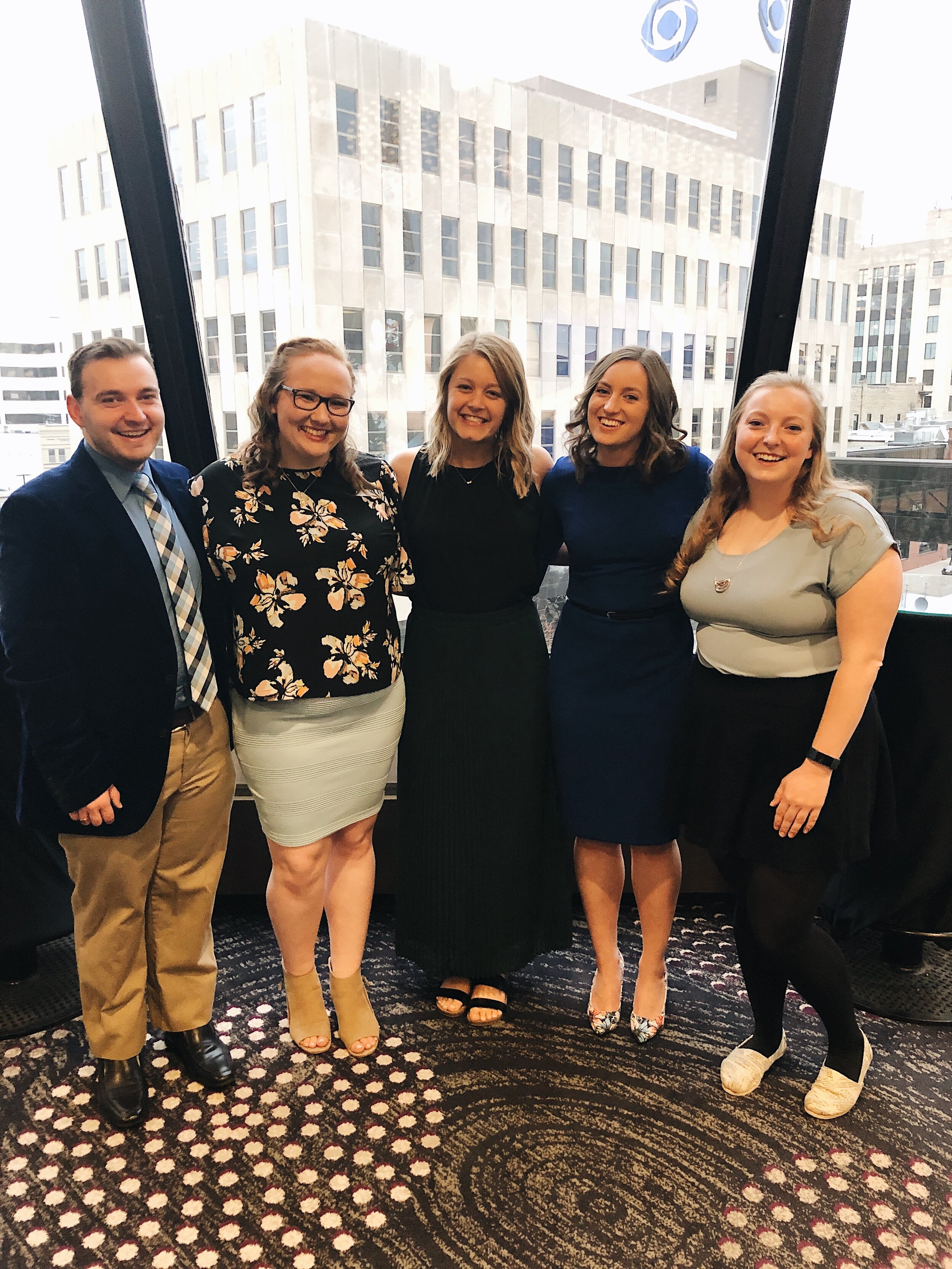the ending i got.
/We held an end-of-year banquet for our Residence Life student leaders last week. This night usually involves getting dressed up, taking group photos, handing out awards, and -- most importantly -- intentionally coming together as one 60+ person team. Instead, on that night, I used my eyebrow pencil and put on a real bra for the first time in 33 days, threw on a sweater over the leggings I’d worn every day that week, and sat in front of a computer screen that held the faces of humans I’ve worked with -- and have cared about so deeply -- this year.
To start our banquet, my boss gave an introduction and a heartfelt thank you to our students (that made me cry, obviously), and ended with: “This is not the ending we wanted, but it is the ending we got.”
Last month, like most colleges in the country, my institution made the responsible choice to move to remote learning for the rest of the year. Most of our student staff quickly left campus. So did our residents, some taking everything with them, some leaving belongings behind that they’ll return to campus to pack soon. Outside my apartment building, there are four cars in a parking lot that’s usually full. I walk through campus often but don’t encounter anyone (except the turkeys and squirrels who are thriving with their new freedom). Over the past weeks (it’s really only been weeks, not months?), what it means to be a Residence Life professional changed.
And because I am leaving my job this summer -- there, I said it without hiding it in a sneaky, wordy Instagram post -- it will never go back to the way it was.
I’ve tried writing about leaving my job three different times now. I first wrote about it in January, but didn’t publish anything because it felt too soon. I’ve known I was leaving since last summer, when I had my first real wonderings about what it would feel like to return home from a workout, or after a night out with girlfriends, or with a man I’m dating and not run into students who recognize me because of the posters of my face plastered up in their hallway or because we met earlier that week for a conduct meeting. My boss has known since November, my colleagues have known since January, and I told my staff in February. This has been my plan for a while now -- a chance to enter my 30s outside the walls of a residence hall.
But sharing in January still felt too soon. So I wrote something and then I sat on it through January. And February. This was normal for me; I write things and sit on them wayyyy more frequently than I write things and actually put them out in the world. That writing was, may I say, some nice, hopeful shit centered around the “both/and” of loving something and also leaving it, filled with well-crafted metaphors, thoughtful reflections, and even some space to add what I was going to do next.
But then it was March, and the world changed. None of my words made sense to share anymore. Who am I to wax poetic about a beautiful theological concept in the midst of a global pandemic? I’m a complicated being full of multilayered truths, sure, but the only truth I am filled with right now is that I really do not know WTF is happening. The excitement about finding what was next for my career, my trust in embracing the unknown, my big, brave steps into a world outside of Residence Life? It all vanished when I realized that I was willingly leaving not only my stable job but my housing in the midst of a global health pandemic and the highest rates of unemployment in years. Oops.
So then, with many deep breaths, I tried to write something new. It included different words meant to make ~MeAnInG* of this mess, lots of feelings about the sadness of my job (as I knew it) ending just like that, and a few feeble attempts to be brave despite the realities of the world. It was all a bit dark and rambly and, despite being filled with emotion, didn’t capture how I felt or what I wanted to say. I deleted the whole thing. (Just kidding, I never delete anything, so it’s sitting in my drafts folder along with my January words, where all of my unpublished drafts go to die. Until I eventually resurrect them between four months and three years later.)
And then last week, I sat in that Zoom banquet with my colleagues and students, celebrating our year together and this weird-ass end to it that we didn’t ask for, and I reflected on my own endings this year -- the ones I lived without knowing it.
Without knowing it, I held my last one-to-ones in my office. My students talked about classes and tests, lamented about group projects and overlapping deadlines. I asked about their residents, followed up on roommate conflicts, checked in on their upcoming programs. We’d just returned from spring break and had a whole quarter ahead of us -- so much time! I probably rushed through them in order to rush off to the next meeting or get to the next item on my to-do list.
Without knowing it, I held my last staff meeting -- a wild two hours with a chatty, newly-formed group from two buildings. We talked about expectations of each other and how we wanted to show up as our best selves every Tuesday night. We wrote these on a big piece of yellow butcher paper and tacked it to the wall, so we could be reminded of them each time we gathered. But that was our last time gathering, at least face-to-face.
There wasn’t a final conduct meeting, or an end-of-year party, or a roommate mediation (actually, I’m okay that there wasn’t another one of those). So many traditions, rhythms, and mile-markers of an academic year skipped over, just like that. Without realizing it, I moved through a season of lasts I’d been eager to pay attention to and hold space in my heart for. I wanted to enter each of these endings knowing they were the final time, so I could properly say goodbye to what has been my career and home for years.
I’m realizing that maybe it’s better that I couldn’t make a running list of every “last” in my Residence Life career, pinpointing and preparing for those exact moments. If I’d had the time, I toooootally would have made a checklist with all the things I wanted to do one last time -- a bucket list of sorts -- turning really special moments into to-do lists for my planner. In my head, it was because I wanted to prepare for them, make sure I always remembered them, to count them as special. But let’s be real -- I wanted something I could control in the midst of inching closer and closer toward an Unknown Life outside of Residence Life. That list would have turned those moments not into something to be fully present for and experience, but as something else to accomplish. To check off. To get through.
It’s better that I had all of these lasts without realizing they were happening, without the chance to put extra pressure on myself (or others) to make each one meaningful, special, “one for the books.” Because even without naming them as my endings, that’s what they were. And all of them were important and meaningful. Sacred, even.
Our last building-wide program was not a program at all, but a series of sex education booklets my staff made and delivered to every resident in their hall. I got to proofread them before they sent them out, and was struck by their inclusivity, dedication, and humor. There weren’t any end-of-year parties this year, but that means my last one included a homemade slip-’n-slide and getting pied in the face. And while I won’t have the traditional photo memories from our end-of-year banquet -- dressed up, “let’s make a funny face,” selfies with everyone -- I have this. And that can be enough.
These weren’t the endings I wanted, but they’re the ones I got. And despite it all, what I got was good. Not just these endings, but my whole career in Residence Life. It was all so very good. It was hard and unexpected and challenging and hilarious and full of tears and laughter and late nights and emails and duty calls and I never could have planned the way these last four years went if I tried. It was all so good.
It was all more than enough.

